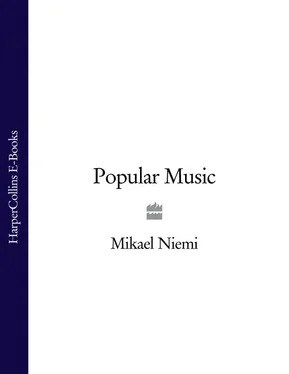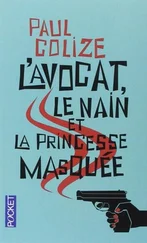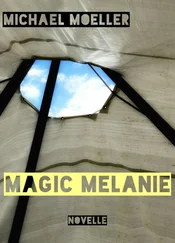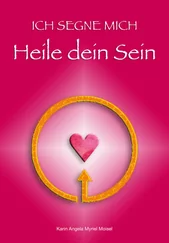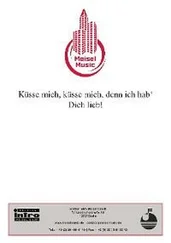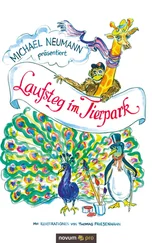To begin with, we all had to go to the blackboard and write our names. Some could, others couldn’t. On the basis of that scientific test, our teacher divided the class into two groups, called Group One and Group Two. Group One comprised all those who had passed the test – most of the girls and a few sons of civil service clerks. The rest were in Group Two, including Niila and me. We were only seven, but correctly classified right from the start.
Hanging from the wall in front of the class were The Letters of the Alphabet. A scary army of sticks and half-moons stretching all the way across. Those were the things we were required to wrestle with, one after another: force them down on their backs in our exercise books and make them do as they were told. We were given pencils as well, and chalks in a cardboard box, a reading book about Li and Lo, and a stiff sheet of cardboard with blocks of watercolour paints that looked like brightly coloured sweets. Then we had to get down to work. The inside of the desk lid had to be lined with paper, and the books as well: there was a deafening crackling and rustling from the rolls of wax-paper we’d brought from home, and some eager snipping with blunt school scissors. Finally we stuck a timetable onto the inside of our desk lids with tape. Nobody had the slightest inkling of what all those mysterious squares actually meant, but the timetable was an essential part of things, part of being Neat and Orderly, and it meant our childhood was over. Now we were faced with a six-day week with school from Monday to Saturday, and on the seventh day there was Sunday School for those who hadn’t had enough of it.
Neat and Orderly. Stand in a queue outside the hall when the bell rang for lessons. Walk in a line to the canteen, with the teacher at the front. Hold up your hand whenever you wanted to speak. Hold up your hand whenever you wanted to leave the room for a pee. Turn the punched holes in your paper towards the windows over to your left. Go out into the playground the moment the bell rang for break. Go back in the moment the bell rang for lessons. Everything done in that typically calm, Swedish manner, and only rarely was it necessary for some cheeky oaf in Group Two to have his hair tweaked by pincer-like magisterial talons. We liked our teacher. She really knew how to turn you into an adult.
Right at the front, next to teacher’s desk, was the harmonium. It was used every morning when she read the register and we sang hymns. She’d sit down on the stool and start pedalling away. Her fat calves bulged inside her beige knee-length stockings, her glasses misted over, she spread her gnarled fingers over the keyboard and gave us a chord. Then a quivering dowager-soprano, with stern glances to left and right, making sure we were all joining in. Sunlight seeping in through the window panes, yellow and warm over the nearest desks. The smell of chalk. The map of Sweden. Mikael who suffered from nose-bleeds and sat with his head leant back, clutching a roll of kitchen paper. Kennet who could never sit still. Annika who always spoke in a whisper, and all the boys were in love with. Stefan who was brilliant at football but would ski into a tree on the Yllästunturi slalom slope three years later and kill himself. And Tore and Anders and Eva and Åsa and Anna-Karin and Bengt, and all the rest of us.
As a citizen of Pajala, you were inferior – that was clear from the very beginning. Skåne, in the far south, came first in the atlas, printed on an extra-large scale, completely covered in red lines denoting main roads and black dots denoting towns and villages. Then came the other provinces on a normal scale, moving further north page by page. Last of all was Northern Norrland, on an extra-small scale in order to fit onto the page, but even so there were hardly any dots at all. Almost at the very top of the map was Pajala, surrounded by brown-coloured tundra, and that was where we lived. If you turned back to the front you could see that Skåne was in fact the same size as Northern Norrland, but coloured green by all that confoundedly fertile farming land. It was many years before the penny dropped and I realised that Skåne, the whole of our most southerly province, would fit comfortably between Haparanda and Boden.
We had to learn that Kinnekulle was 1,004 feet above sea level. But not a word about Käymävaara, 1,145 feet high. We had to be able to ramble on about the Viska, the Ätra, The Vomit and the Bile (or whatever they were called), four colossal rivers that flowed from the southern Swedish highlands. Many years later I saw them with my own eyes. I felt obliged to stop the car, get out and give my eyes a good rub. Ditches. Tiny little brooks barely deep enough to paddle in. No bigger than Kaunisjoki or Liviöjoki.
I felt similarly alienated when it came to culture. The books intended to teach us the Swedish language were full of things that made sense to children in the south of the country, but were beyond our comprehension.
‘Have you seen Mr Chantarelle?’ our reader asked us.
I could answer that question with an outright ‘no’. Nor Mrs Chantarelle, nor any other strange members of this mushroom family, come to that. Chantarelles didn’t grow in our part of the world.
We sometimes used to receive Treasure Trove, the Savings Bank magazine, with a picture of the bank’s oak tree logo. If we saved our money, it would grow and grow until it was as big as that majestic old oak, we were told. But there were no oak trees around Pajala, and so we realised there was something fishy about the advert. The same sort of things applied to the Treasure Trove crossword, where one of the clues that kept cropping up was a tall tree similar to a cypress, seven letters. Answer: juniper. But where we lived the juniper was a straggly little bush about knee-high.
Music lessons were a fascinating ritual. Our teacher would produce a big, clumsy tape recorder and put it on her desk – a gigantic chest dotted with spikes and knobs. She would slowly thread in and set up a tape, then hand round song books. Peer at the class with her owlish eyes, and switch on. The reels would start turning, then a bright and breezy signature tune would blare out from the loudspeakers. A brisk female voice spouting something or other in a Stockholm accent. She would go on to give us a perfect music lesson, peppered with sighs and squeals of enthusiasm. The pupils were from the Nacka School of Music in Stockholm, and to this very day I wonder why we were forced to listen to these southerners with angelic voices singing about bluebells and cowslips and other tropical vegetation. Sometimes one of the Nacka pupils would sing a solo, and the worst thing was that one of the boys had the same name as me.
‘Now, repeat that tune for me, Matthias,’ the lady would chirrup, and a girlish boy soprano would ring out as clear as a bell. At which point the whole of our class turned round to stare at me, grinning and giggling. I wished I could have gone up in smoke.
After several pedagogical repetitions, we were expected to sing along with the tape – the Kermit the Frog Ensemble joins the Vienna Boys’ Choir. Our teacher’s eyes took on a glint of steel, and the girls started to sing softly like the soughing of zephyrs through tufts of grass. But we boys stayed as silent as fish, moving our lips when teacher glared at us, but that’s all. Singing was unmanly. Knapsu. And so we kept quiet.
We gradually caught on to the fact that where we lived wasn’t really a part of Sweden. We’d just been sort of tagged on by accident. A northern appendage, a few barren bogs where a few people happened to live, but could only partly be Swedes. We were different, a bit inferior, a bit uneducated, a bit simple-minded. We didn’t have any deer or hedgehogs or nightingales. We didn’t have any celebrities. We didn’t have any theme parks, no traffic lights, no mansions, no country squires. All we had was masses and masses of mosquitoes, Tornedalen-Finnish swearwords and Communists.
Читать дальше
